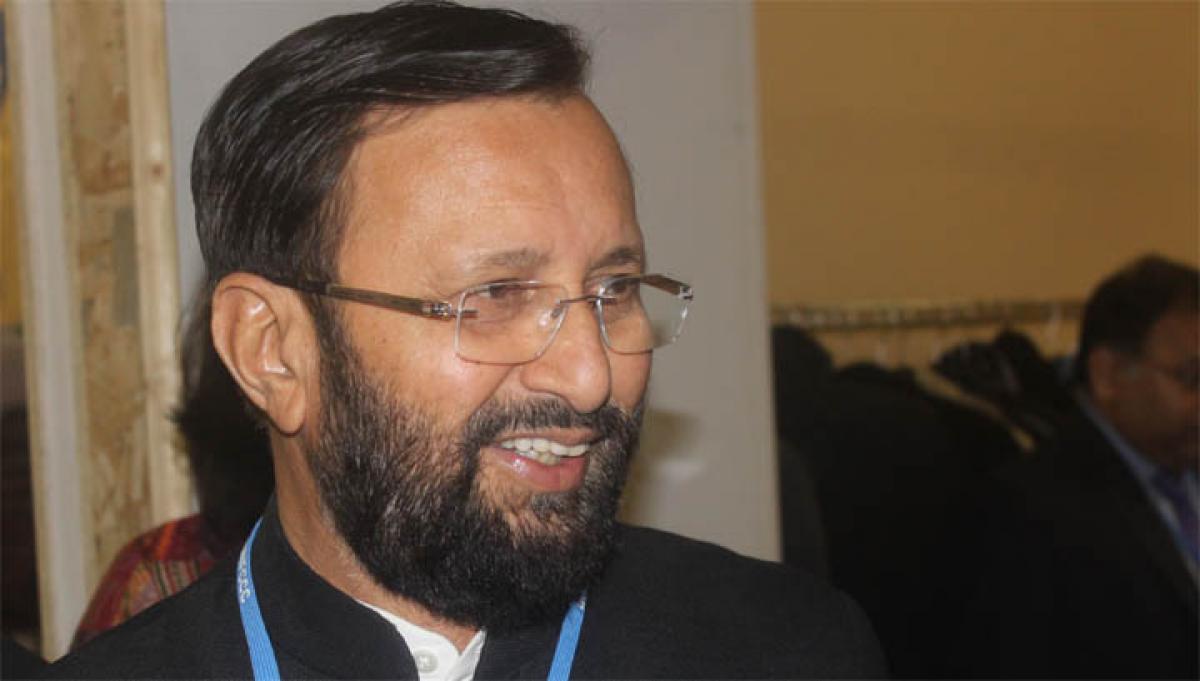Live
- Gold rates in Visakhapatnam today, check the rates on 10 November, 2024
- Wandering through the charming streets and alleys of Philadelphia
- Rayalaseema and South Coastal Andhra to receive rains from November 12 amid surface circulation
- How thoughtful design shapes our homes and future
- The Indian cricket cap has very little value
- Four leaders appointed to various nominated posts
- Transforming stress into personal growth
- Meat for Kids
- ‘DAG’ (Goodbye) Amstelveen, Amsterdam!
- A captivating Kuchipudi ballet celebrating divine love and valour
Just In

x
Highlights
As negotiations grind down to the last day on Friday, the hopes for an agreement seemed to be stuck on one major point-money. Unless the developed countries come out with specific commitment, the climate change conference may not yield an important agreement, say developing countries.
As negotiations grind down to the last day on Friday, the hopes for an agreement seemed to be stuck on one major point-money. Unless the developed countries come out with specific commitment, the climate change conference may not yield an important agreement, say developing countries.
"Hollow promises and hollow slogans won’t work," Indian Environment, Forests and Climate Change Minister Prakash Javadekar told Indian reporters here, following his meeting with the US delegation led by Secretary of State John Kerry. The minister said the developed countries have to come up with the money if they want to see concrete progress in Paris.
He said India delegation had a good meeting with the US officials and the two sides had seen a "convergence of ideas", on broad terms adding that the final text of the agreement would depend on what the negotiators arrive at.
Asked if India agreed with the position taken by island nations that the global temperature rise cap should be lowered to 1.5 degree centigrade from earlier limit of 2 degrees, Javadekar said that they did not have any problem with the new limit. However, he said that just lowering the limit would not help, and it had to be followed up by action.
"Who will take that action," he asked rhetorically answering that its the Western countries which had to agree to this and come up with more money to make developing nations help cope with this.
Asked how he expected an increase when the existing requirement of $100 billion contribution till 2020 by developed countries was not being adhered to, the minister said that was the crucial issue. “There is no money on the table so far,” he said although stating that he was optimistic of a comprehensive agreement by Friday.
Many scientists have predicted that with global temperature rising above two degrees over since the industrial revolution of 1800s, mankind may face catastrophic climate events. So far, the global temperature has risen 0.8 degrees in a little over a century.
Javadekar said that the first draft agreement floated by the French presidency, the hosts of the 21st climate change conference called the CoP21, was not satisfactory as it had not given adequate importance to the principle of "common but differentiated responsibilities (CBDR)".
This principle means that developed countries and developing ones have different responsibilities to tackle the after effects of climate change.
Javadekar said the principle of CBDR was mentioned much below and not emphasised upon enough. He said he was hopeful that in the second draft, expected to be released by the French presidency later in the afternoon would take care of it.
Last evening, negotiations among parties went late into the night and some kind of understanding seems to have emerged on several points, though on crucial issues of money, technology transfer and emissions, there still appears to be different positions among the developing countries and the developed ones. The second draft is expected to narrow the differences.
Javadekar, also asked whether there was pressure imposed upon India by the US in the full meeting in the morning, said: “India does not take any pressure,” adding though that it was ready to engage on all issues. He said what India was looking for in Paris was basically “climate justice” for all the people and especially the 1.2 billion people of India.
Earlier, the minister had said that Group of 77 developing nations stood together along with China to ensure that an equitable and fair agreement arises out of Paris where the carbon emissions are reduced but developing countries are given enough space to grow. Carbon dioxide, an ingredient of fossil fuels, and a green-house gas is said by scientist to warm up the plant.
The United Nations’ Intergovernmental panel on climate change says that human beings are responsible for the major portion of global warming.

Next Story
More Stories
ADVERTISEMENT
© 2024 Hyderabad Media House Limited/The Hans India. All rights reserved. Powered by hocalwire.com







